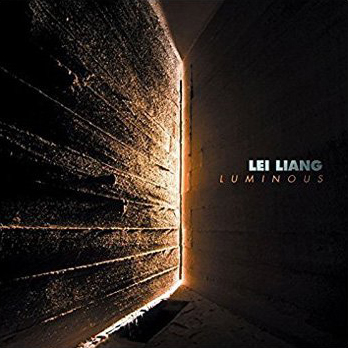a rich confluence of many different cultural threads, a vivid and open imagination
These five compositions represent further explorations of his long-standing research into traditional Asian arts and music and their incorporation into a contemporary music aesthetic. Verge Quartet (2013) is the latest example of Liang's extensive study of Mongolian music. Trans (2013), written for virtuoso percussionist Steven Schick, incorporates audience participation by having them play more than a hundred pairs of rocks, creating a sonic "cloud" that can be interpreted as rain or other natural sounds. The moon is following us (2015) (for solo piano) represents the composer's effort to search for a new harmonic language, based on spectral analysis of a Chinese folk song. Liang imagines the composition as a journey through the spectral landscapes hidden within a voice.
Inkscape (2014) (for percussion quartet and piano), one of several works in which Liang engages with the idea of Chinese traditional mark-making, either that of calligraphy or painting, is an exploration of the relationship between sound and Chinese ink paintings. In this piece, the piano functions as the "brush," and the percussion quartet as the "ink." Luminous (2014) is a concerto written specifically for the innovative bass improviser Mark Dresser. The composer writes, "The instrument's rich spectra embody 'voices' that encompass extreme opposites - lightness and darkness, angels and ghosts, paradise and inferno - unified by a singular vibrating body."
Inkscape by Lei Liang


